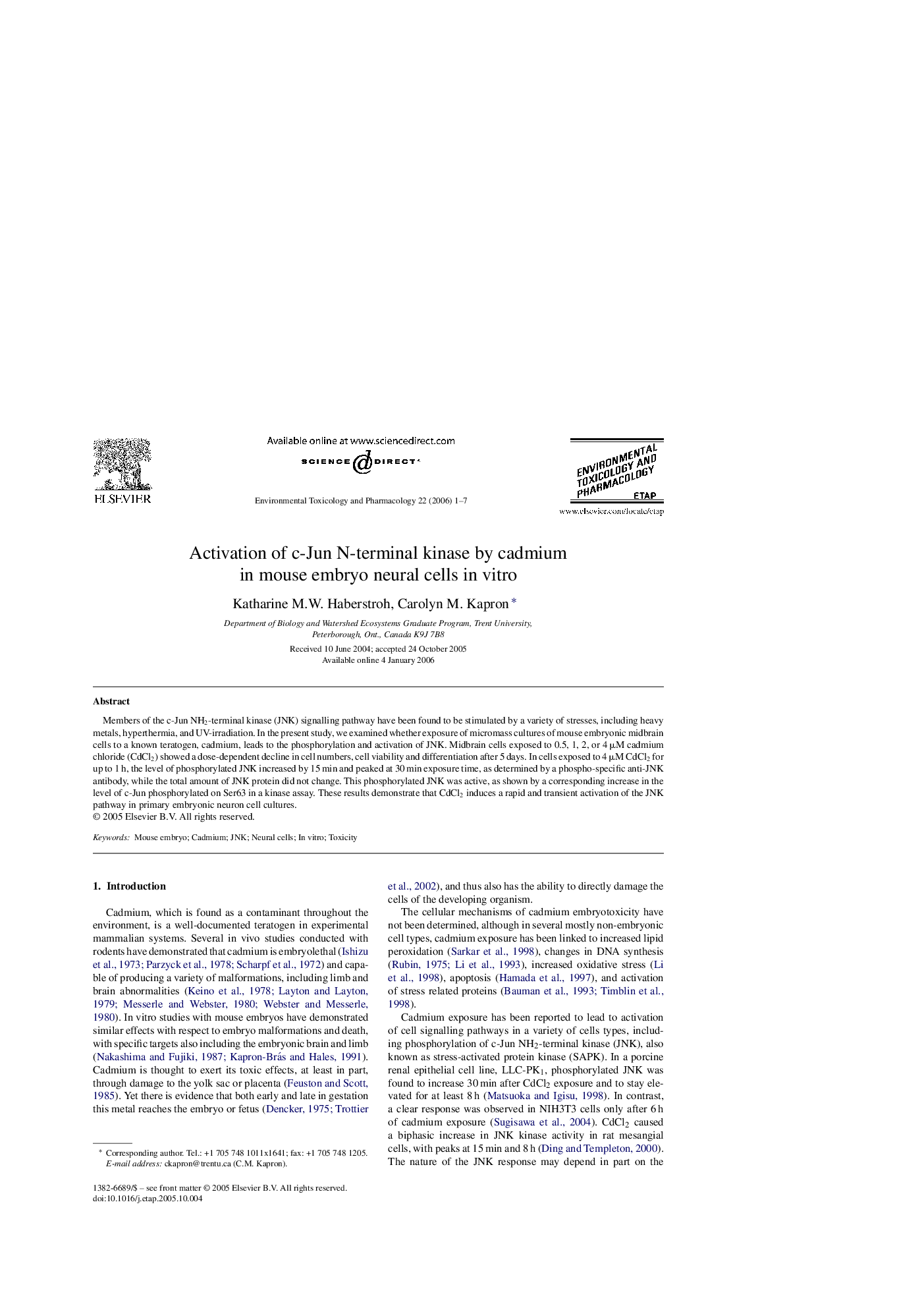| Article ID | Journal | Published Year | Pages | File Type |
|---|---|---|---|---|
| 2583895 | Environmental Toxicology and Pharmacology | 2006 | 7 Pages |
Members of the c-Jun NH2-terminal kinase (JNK) signalling pathway have been found to be stimulated by a variety of stresses, including heavy metals, hyperthermia, and UV-irradiation. In the present study, we examined whether exposure of micromass cultures of mouse embryonic midbrain cells to a known teratogen, cadmium, leads to the phosphorylation and activation of JNK. Midbrain cells exposed to 0.5, 1, 2, or 4 μM cadmium chloride (CdCl2) showed a dose-dependent decline in cell numbers, cell viability and differentiation after 5 days. In cells exposed to 4 μM CdCl2 for up to 1 h, the level of phosphorylated JNK increased by 15 min and peaked at 30 min exposure time, as determined by a phospho-specific anti-JNK antibody, while the total amount of JNK protein did not change. This phosphorylated JNK was active, as shown by a corresponding increase in the level of c-Jun phosphorylated on Ser63 in a kinase assay. These results demonstrate that CdCl2 induces a rapid and transient activation of the JNK pathway in primary embryonic neuron cell cultures.
